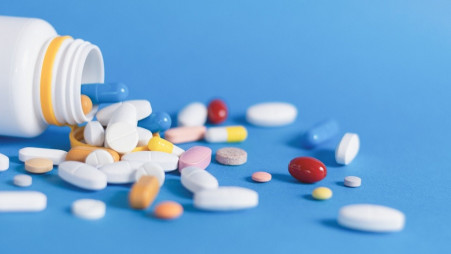Drugmakers push for swift registration of 1,000 new medicines

The Bangladesh Association of Pharmaceutical Industries (Bapi) has urged the government to fast-track the registration of over 1,000 new medicines pending with the Directorate General of Drug Administration (DGDA) for more than two years.
Industry leaders warn that failure to register these drugs within the next three and a half months could have significant financial implications, as Bangladesh will have to fully comply with the WTO's TRIPS obligation ahead of its LDC graduation next year.
At a views exchange meeting held at Bapi office in the capital's Tejgaon on Saturday, jointly organised by BAPI and the Bangladesh Health Reporters Forum, they emphasised that the impending implementation of the World Trade Organisation's Trade-Related Aspects of Intellectual Property Rights (TRIPS) agreement will require high royalty payments and expensive patent procedures for unregistered drugs, ultimately driving up medicine prices.
Bangladesh, a WTO member, is committed to the TRIPS Agreement and currently benefits from transitional flexibilities as an LDC, especially for pharmaceutical patents.
Md Zakir Hossain, managing director of Delta Pharma and secretary general of Bapi, said, "Bangladesh will formally graduate from the LDC category on 24 November 2026, but due to its commitments under other international conventions, the TRIPS agreement will take full effect after November 2025. This means new drugs brought to market after that date will be subject to patent protection and royalty costs."
"We are calling for the registration of all pending drugs before this November so that these products can continue under the current TRIPS waiver. This will prevent patent-related complications and cost increases," he added.
Other speakers included Bapi Senior Vice President and Unimed Unihealth Chairman M Mosaddek Hossain, Renata CEO and MD Kaiser Kabir, Bapi CEO Major (Retd) Mohammad Mostafizur Rahman, and Healthcare Pharmaceuticals CEO and Bapi Treasurer Muhammad Halimuzzaman.
Renata CEO and MD Kaiser Kabir said that LDC graduation will not only impact the pharmaceutical sector but will also have broader economic consequences.
"We will lose TRIPS exemptions, access to low-interest loans, and patent flexibilities. Businesses are demanding a delay in graduation. Cambodia and Senegal managed to defer their transitions due to various challenges, but Bangladesh shows little interest in such negotiations," he said.
Kabir urged that if graduation cannot be postponed, the government should at least seek a three- to four-year transition period similar to other countries.
Gas crisis, infrastructure shortage hit API Park progress
Bangladesh's much-anticipated Active Pharmaceutical Ingredient (API) Industrial Park, launched in 2007, is yet to fully take off due to gas shortages and infrastructure limitations.
Although 27 companies were allocated 42 plots on 200 acres of land in Bausia, Gazaria (Munshiganj), only four have started operations in the last 15 years.
Zakir Hossain of Bapi said, "After receiving their plots in 2017, several companies began exploring technological partnerships with countries like India and China. However, Chinese experts found the plot sizes too small, and the park lacks critical facilities like API reactors, storage, and solvent handling capacities. The biggest issue is the absence of gas supply."
He added that some companies are now considering consolidating unused plots to initiate joint ventures. "Policy amendments have been made, and several companies are in the process of setting up factories. We hope that by 2026, 10 to 12 companies will begin full-scale production at the park."



 Keep updated, follow The Business Standard's Google news channel
Keep updated, follow The Business Standard's Google news channel
















